Cairo Massacre Death Count Keeps Rising [SLIDESHOW]
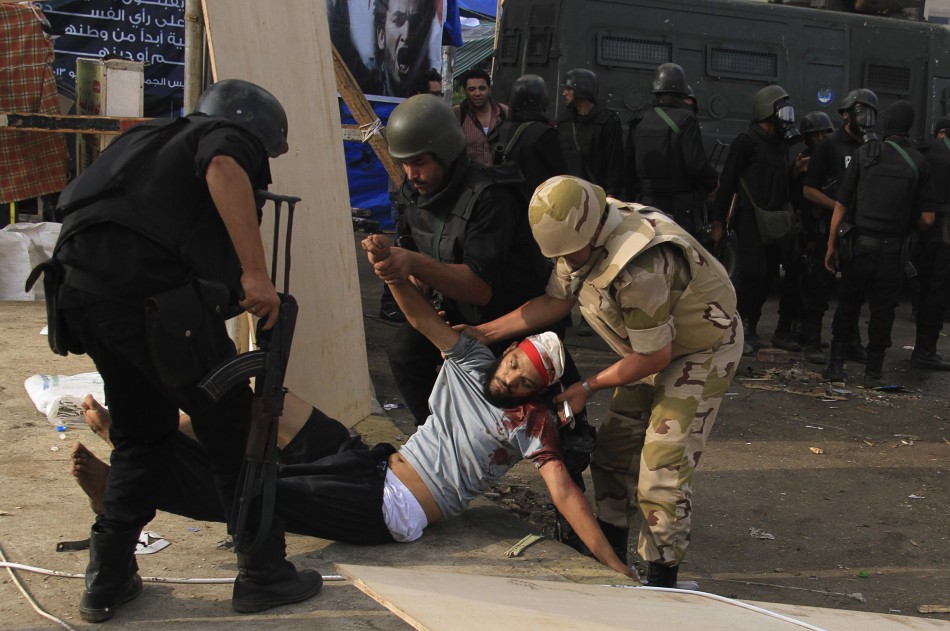

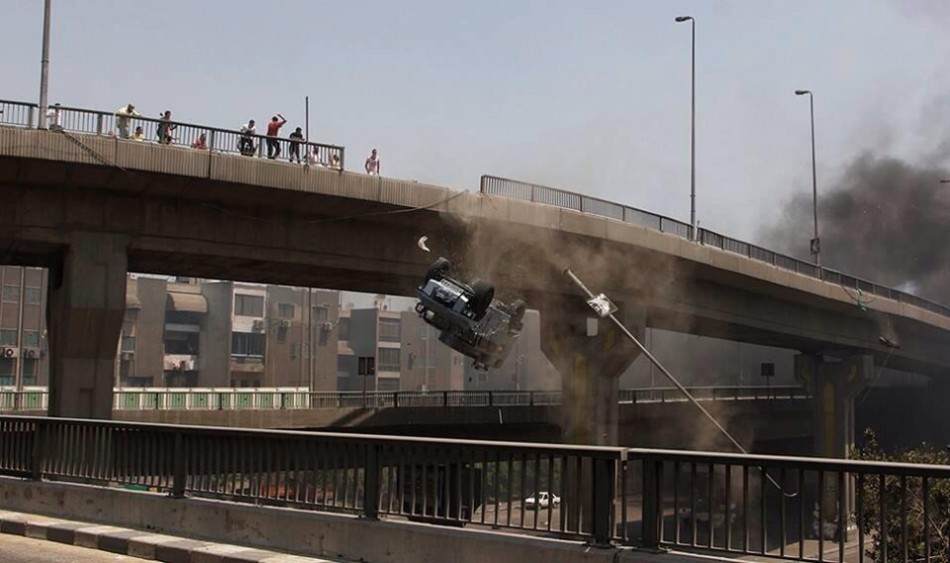
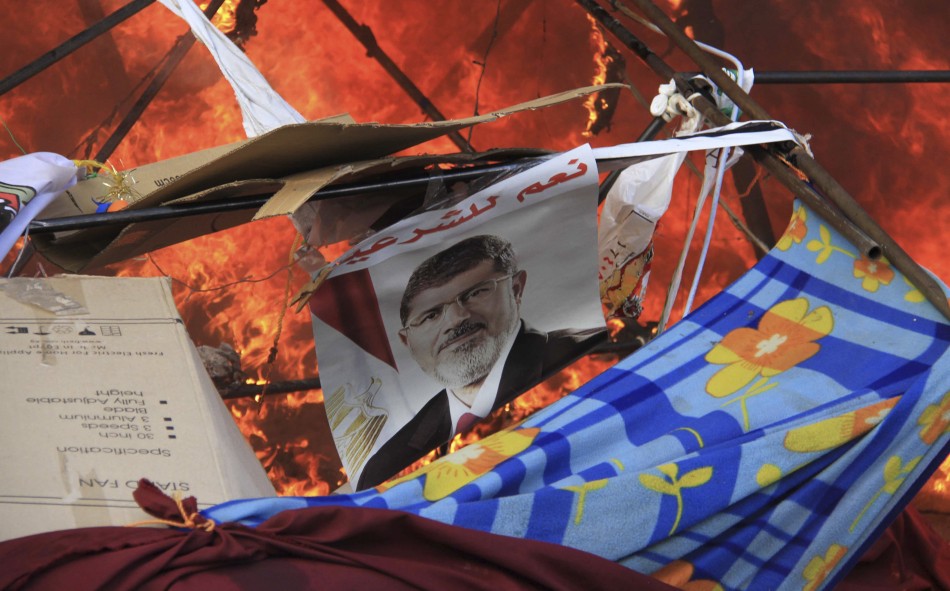
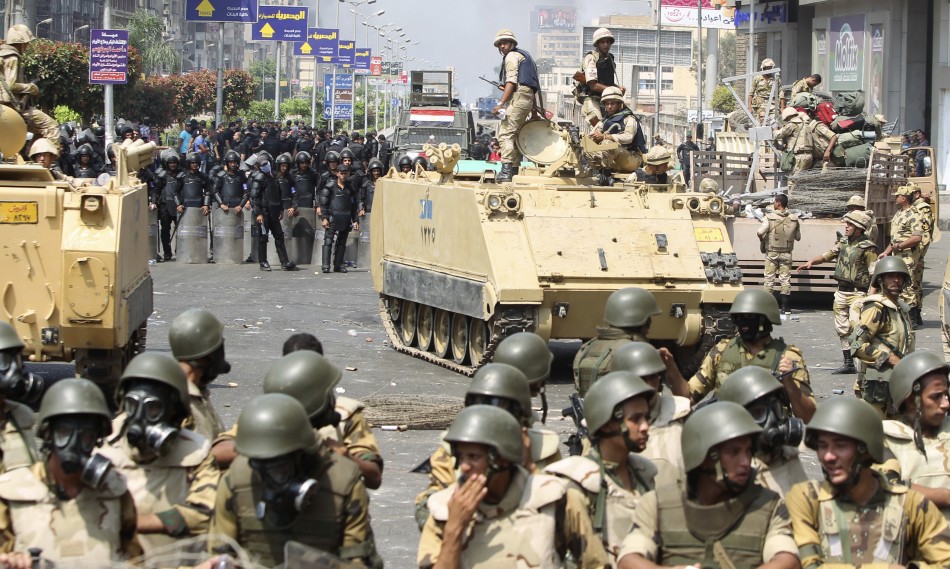
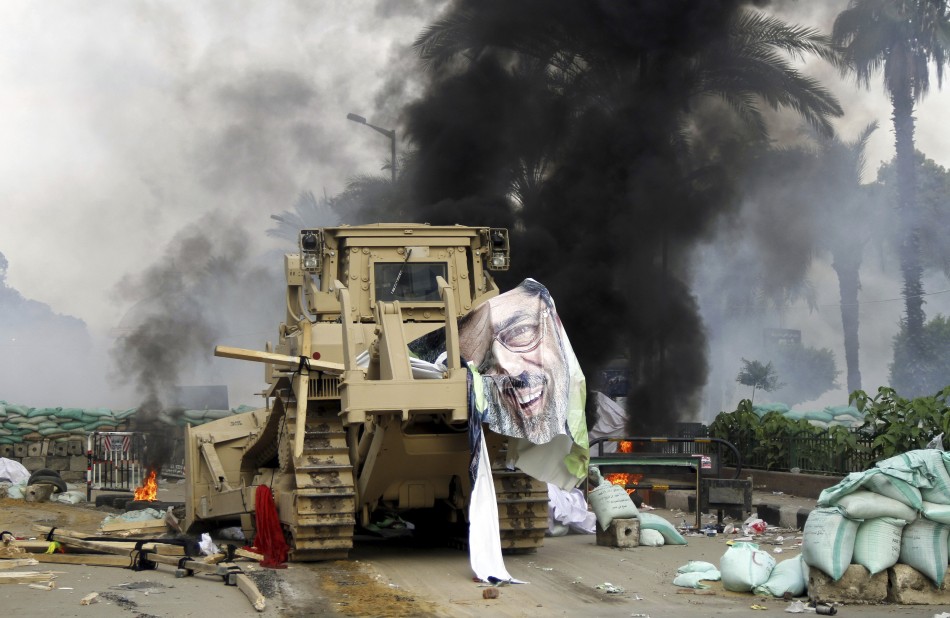
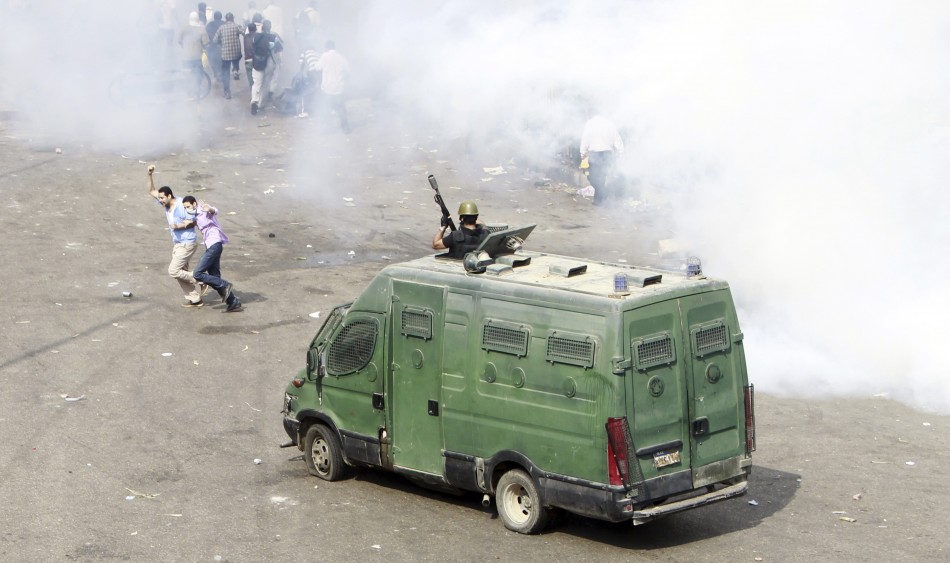
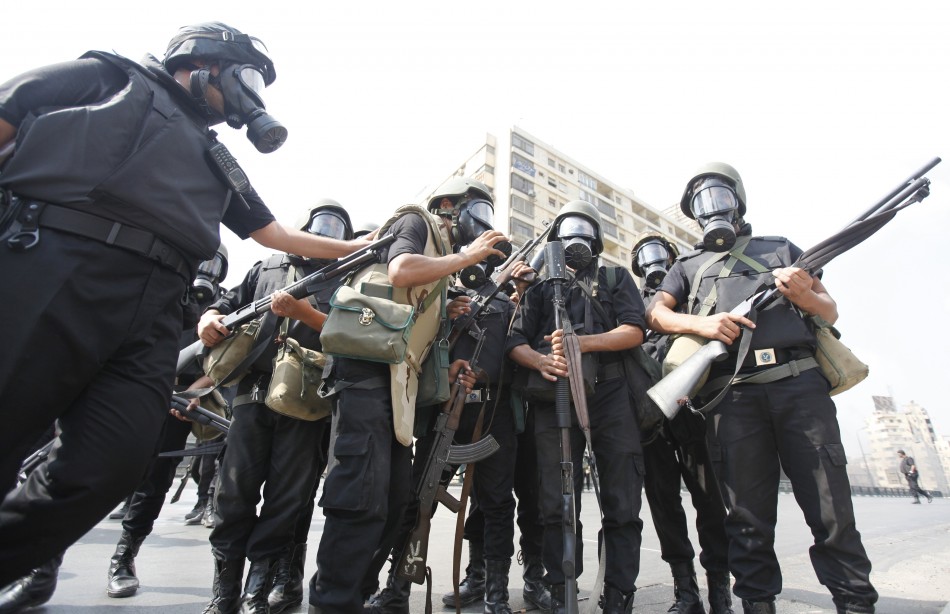
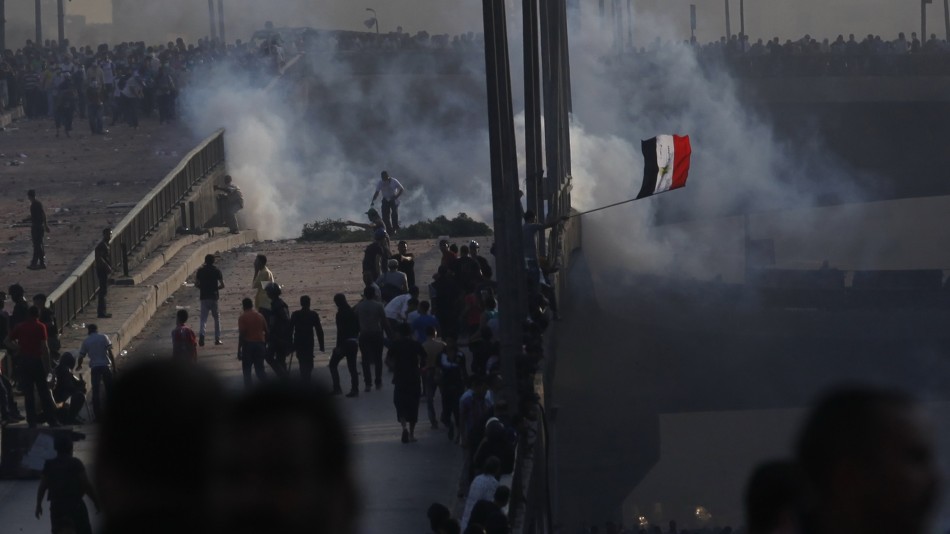
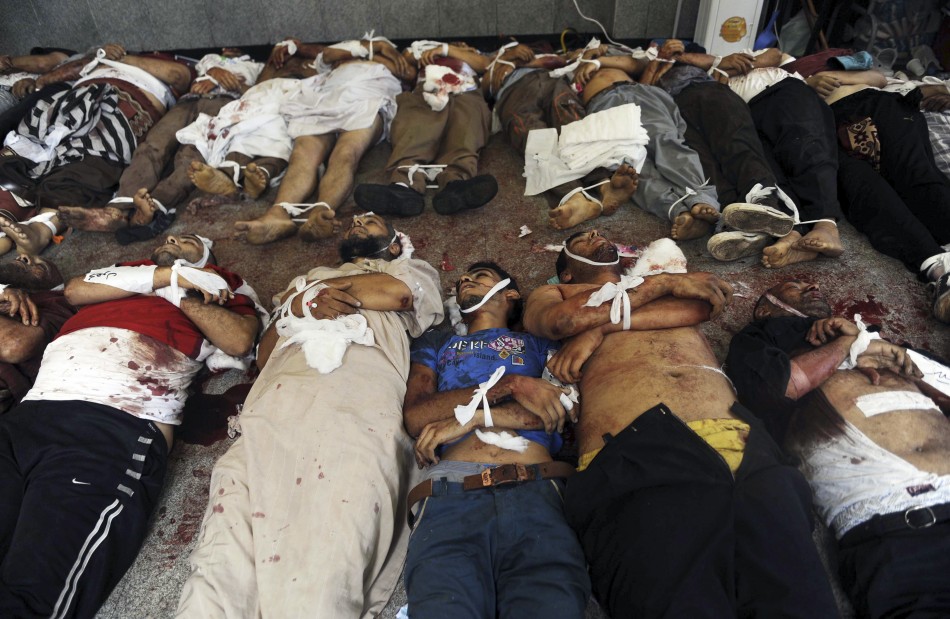
Egypt's health ministry has increased its estimate of the death toll from Wednesday's massacre to 525 people killed and 3,572 injured, but hundreds more are feared dead.
Cairo is reportedly quiet after the military imposed a dusk-to-dawn curfew on the capital and 10 other provinces, declaring a month-long state of emergency in an attempt to restore order after the bloodbath.
Egypt's stock exchange is to remain closed until Sunday and banks will also be keeping their doors shut.
Several countries have condemned the military crackdown on Muslim Brotherhood protesters in Cairo, and expressed concerns over the future of a nation seen as a key power broker in the Middle East.
US Secretary of State John Kerry said the violence was "deplorable" and had dealt a "serious blow" to Egypt's political reconciliation efforts.
"This is a pivotal moment for all Egyptians," said Kerry, who spoke by phone with the foreign minister. "The path toward violence leads only to greater instability, economic disaster and suffering."
EU foreign policy chief Catherine Ashton and UN Secretary-General Ban Ki-moon have also criticised the authorities' excessive use of force.
Violence started after security forces moved in to clear sit-in protests set up by supporters of ousted Egyptian president Mohamed Morsi, demanding his reinstatement. Morsi was deposed by a military coup largely supported by the population and is now being held prisoner in an undisclosed location.
Troops backed by armoured cars and bulldozers stormed two camps outside the Rabaa al-Adawiya mosque and in Nahda Square, firing tear gas as well as live ammunition as police helicopters hovered overhead.
Heavy weapons were also used and snipers shot at the panicking crowds from atop nearby buildings, reports suggest.
"All the fatal wounds we saw were to the head and the chest," a paramedic at a field hospital set up to help the hundreds of wounded told The Times.
The Muslim Brotherhood called it a "massacre", claiming several thousands died at the hands of the government.
"Egypt has never witnessed such genocide," Brotherhood spokesman Ahmed Aref said.
Three journalists were among the dead: Mick Deane, 61, a cameraman for British broadcaster Sky News; Habiba Ahmed Abd Elaziz, 26, a reporter for Gulf News, a state-backed newspaper in the United Arab Emirates; and Ahmed Abdel Gawad, who wrote for Egypt's state-run newspaper Al Akhbar. Deane and Elaziz were killed by bullets, their employers said.
British Prime Minister David Cameron said he was "saddened" by Deane's death and praised his courage in undertaking dangerous work.
"It is essential that cameramen are in places like Egypt because otherwise none of us would know what is happening," Cameron said.
At least 43 policemen were also killed in the violence, as street battles broke out in Cairo and other cities across Egypt.
Government buildings and police stations were attacked and several Christian churches were torched, Interior Minister Mohammed Ibrahim said. Meanwhile photos of protesters pushing a police Humvee and its driver off an overpass near the Nasr City camp were posted on social media.
Nobel Peace Prize winner Mohamed ElBaradei resigned as Egypt's interim vice president, saying he didn't share the government's decision to violently break up the protest camps as the government could not tolerate their challenge to authority indefinitely.
"It has become difficult for me to continue to take responsibility for decisions I disapprove of, and I fear their consequences," he said.
"I cannot take responsibility before God, my conscience and country for a single drop of blood, especially because I know it was possible to spare it."
Interim Prime Minister Hazem el-Beblawi said it was a "difficult day" for Egypt and that he regretted the bloodshed, but offered no apologies for moving against the protesters.
"We want to see a civilian state in Egypt, not a military state and not a religious state," he said.
© Copyright IBTimes 2025. All rights reserved.






















